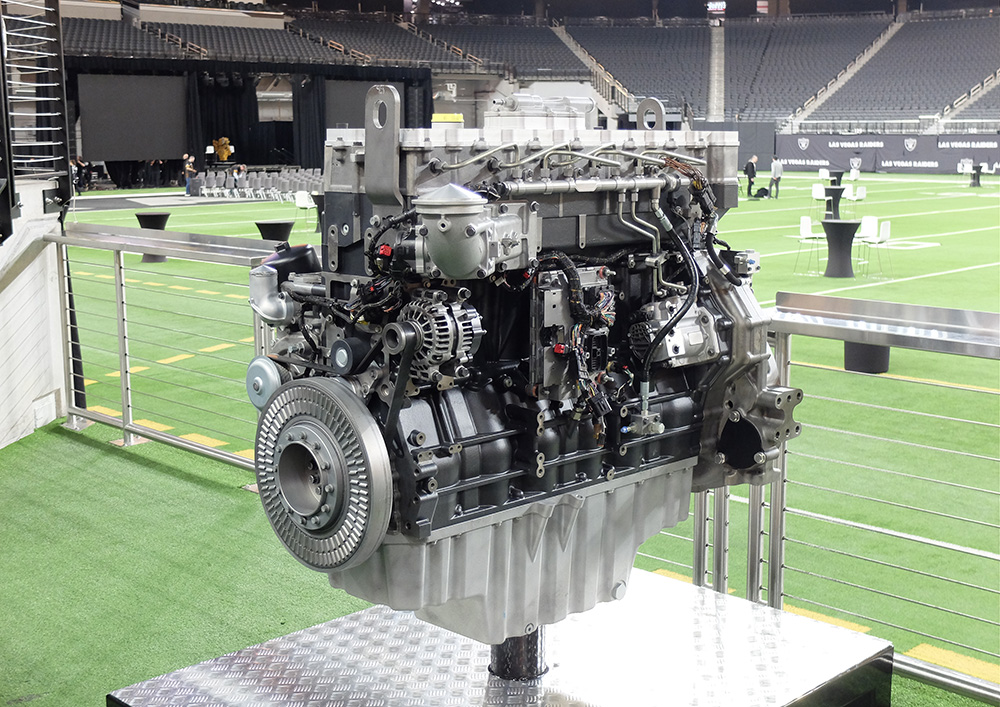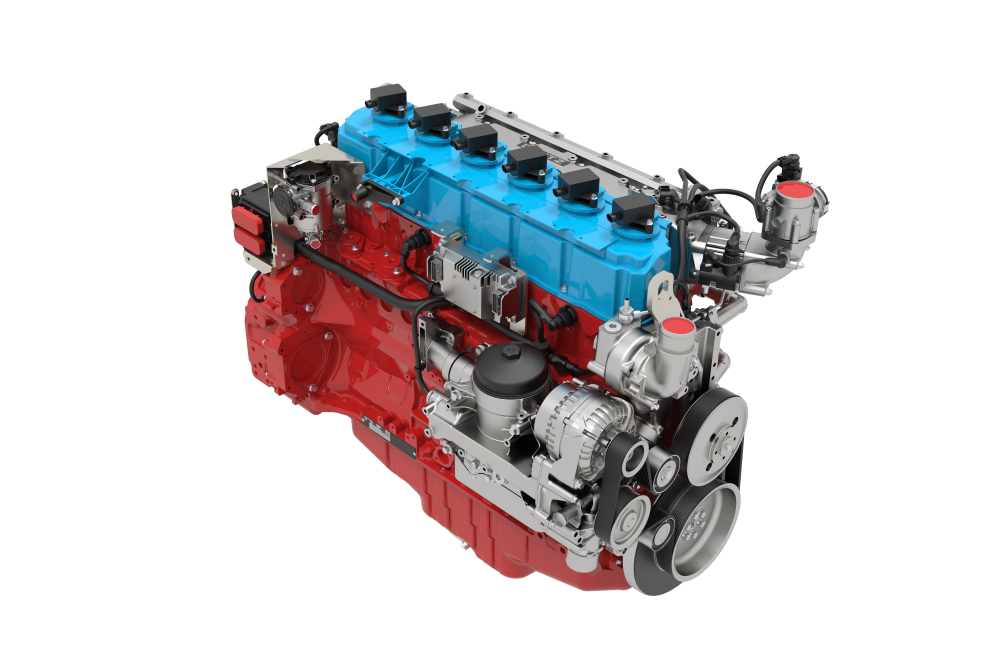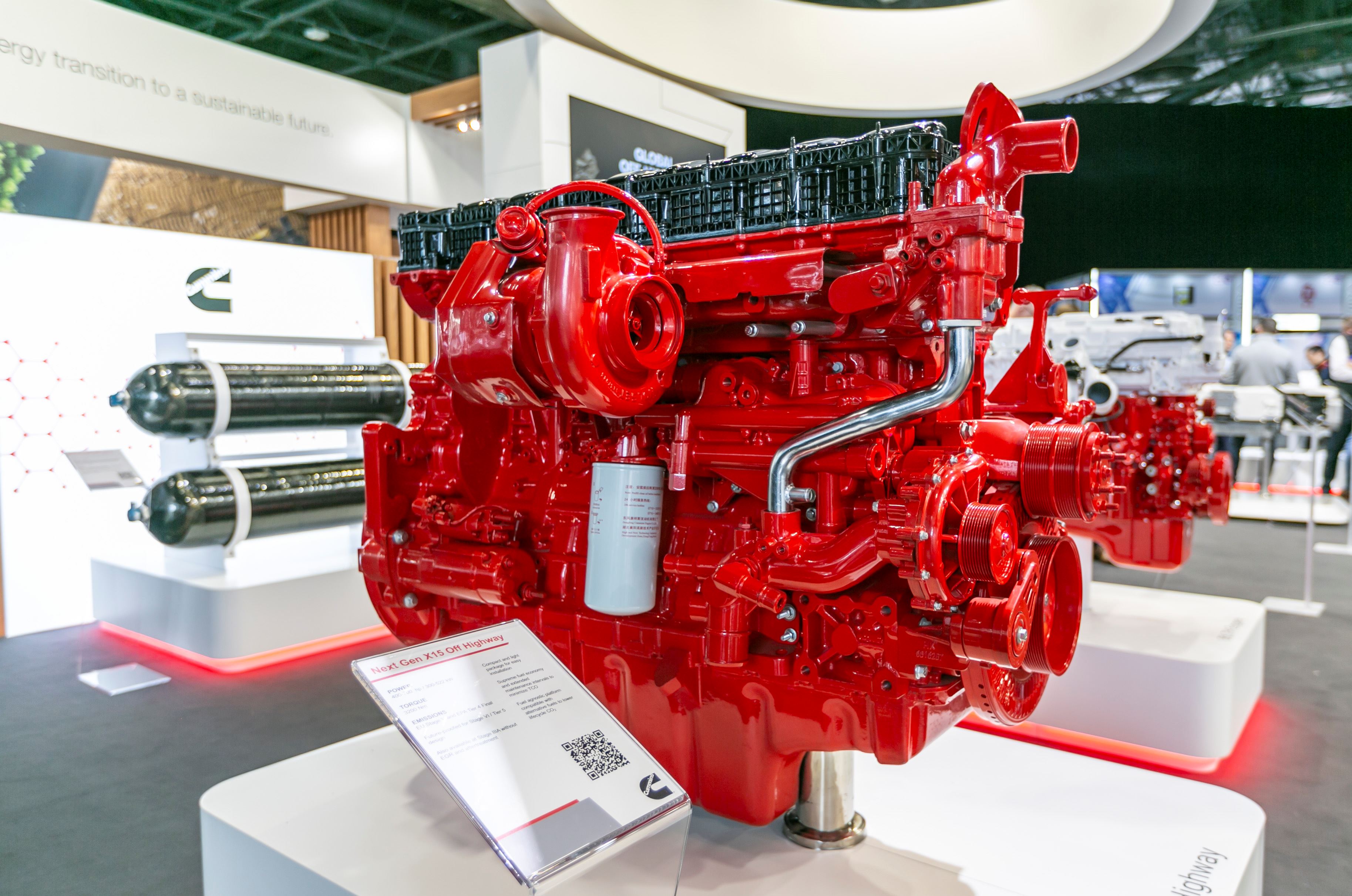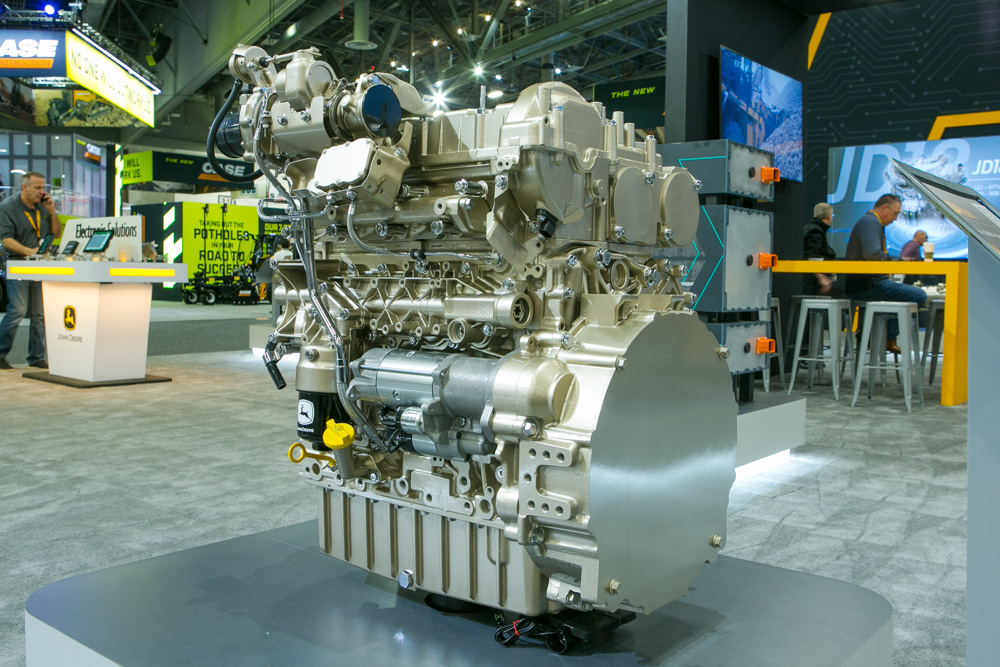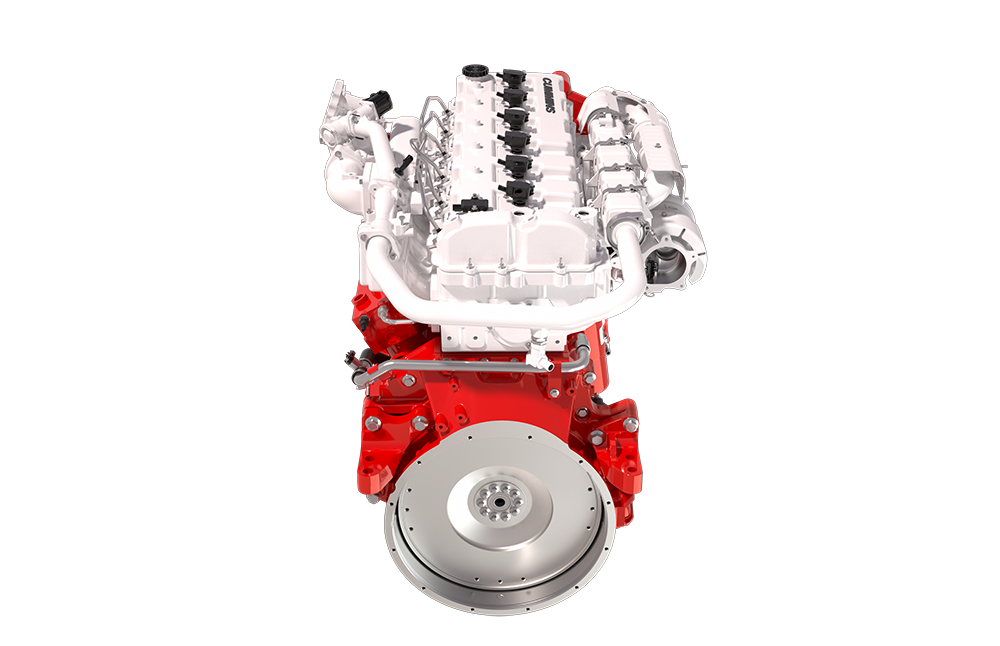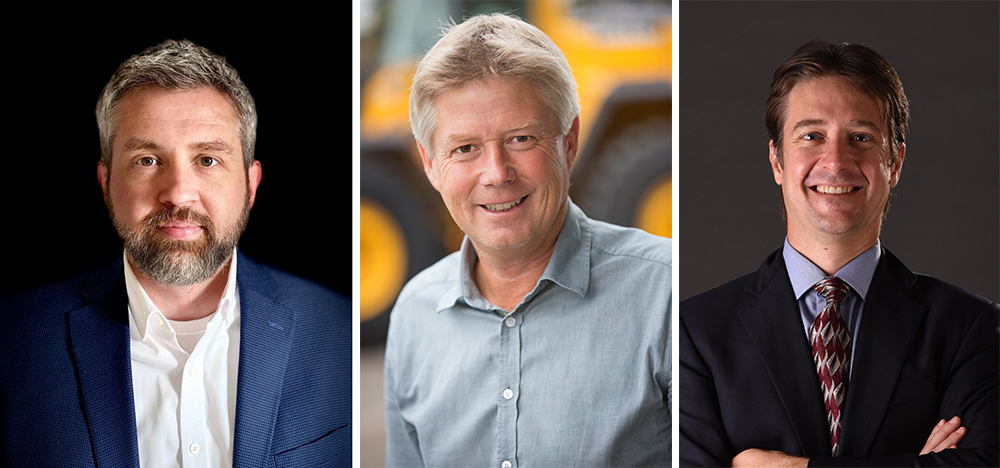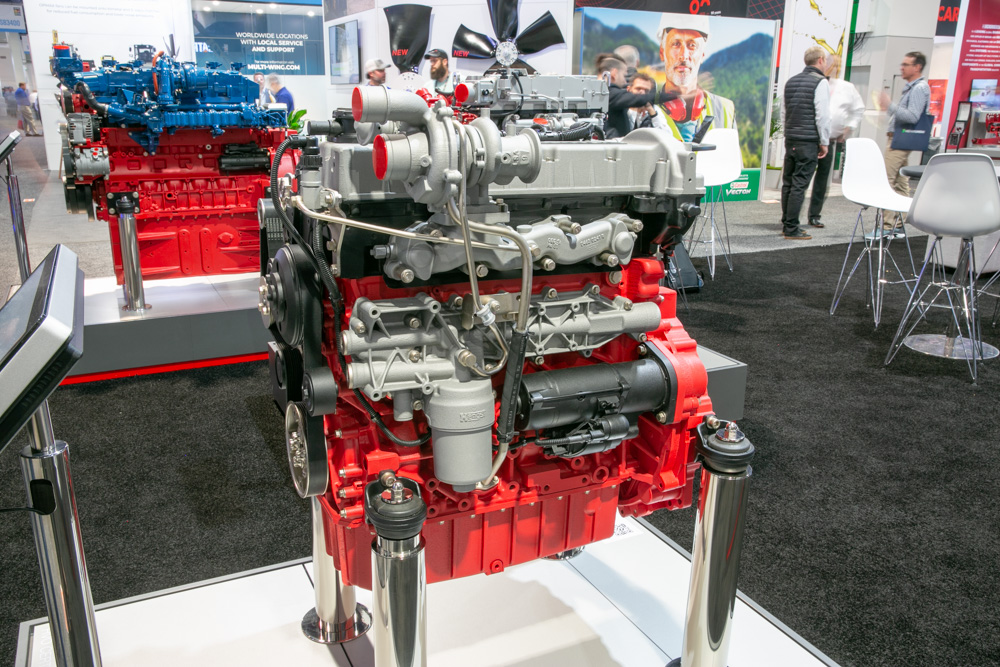
The TCD 3.9 provides 130kW, a power level that is difficult for electric machines to reach, Mueller said. He believes 100 kW is the threshold for electric power. “After that, we need combustion,” he said.
Mueller is quick to point out that there is a place for electric engines. They are a very effective solution for smaller machines that require less power – and likely always will be.
“Electric will get more and more penetration at the bottom, with lower-powered machines,” he said. Above 100 kW, “We will talk about combustion engines.”
In addition, the larger machines frequently are at sites that are difficult to support with electricity, while smaller machines tend to be used in more developed areas.
Deutz also has developed the TCG 7.8 H2 hydrogen engine. The six-cylinder engine is based on an existing design, and despite producing 220 kW of power is both carbon-neutral and very quiet.
In principle, the hydrogen engine can be used in all current Deutz applications, and even in the on-highway segment, the company said. After initially being piloted in a genset for generating electricity, the engine will now be trialled in an 18tonne truck.
Booth S84029



